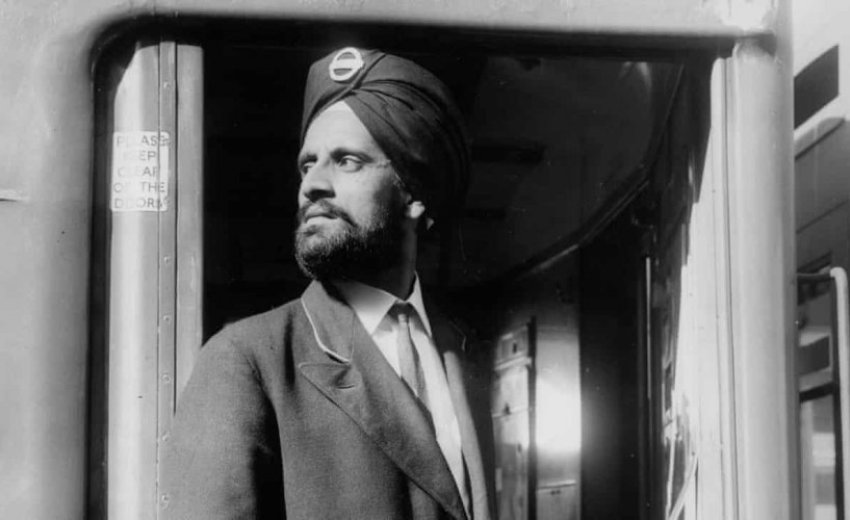Sikhs have always struggled with turban rejection by other cultures, particularly in foreign countries. In Manchester, where the corporation transport committee forbade turban-wearing Sikhs from working as bus conductors. A further twist in the turban's illustrious history was unravelled in 1960. Drivers and conductors had to wear the department's uniform headgear, according to a committee order. Let’s revisit the incident.
Seven leaders of the Sikh community in the city met with the chairman of the committee, Councillor CR Morris, to discuss the reasons why they believe the ban on turbans is unjustified. The dignified delegation wore turbans ranging in colour from light pink to dark blue, and the turbans featured a variety of patterns in browns and greens.
How Sikhs fought for their turban rights
Gyaril Sundar Singh Sagar, a graduate of the university and a leader in the Manchester community, started the narrative last year by asking for a job as a bus conductor. He then became the leading speaker for the Sikhs in Manchester. He offered to wear the department's badge in his dark blue turban. Following some investigation and deliberation, the committee came to the conclusion that it would not alter its rule, which said that conductors are required to wear caps or risk losing their jobs. Sagar wanted his turban, so he turned down a job at one of the bus depots that required him to wear a turban. Later, he and his community continued to pressurise the committee on the basis of their religious beliefs.
In 1959, the city council upheld the committee's original prohibition on turbans by a vote of 41 to 31. A second discussion on the matter was averted in 1960 when Councillor Morris stated his willingness to meet with Sikh leaders in Manchester and hear their case. After an hour of discussion, he said that Sagar is a powerful advocate of his belief system.
The delegation argued that the committee had neglected the city's widespread sentiment that turbaned conductors should be permitted to operate on buses; that the turban was an integral part of a "proper" Sikh's life; and that it was recognised as a recognised headpiece in the Services.
Power of resistance
The delegation presented statistics showing that over 82,000 turbaned Sikhs were killed and over 108,000 were injured during the two world wars. More than half of the Victoria Crosses were awarded to Sikhs in the British Indian armies, and Sagar argued that if Sikhs could die wearing the turban, they should be permitted to live with it. Manchester was also criticised for failing to live up to its progressive reputation, despite the fact that Newcastle upon Tyne already employs six turbaned Sikhs on its buses.
In conclusion, the delegation guaranteed that Sikhs working as conductors would wear turbans in any colour selected by the committee, and they stated,
“Turbans would add colour to the scene of Commonwealth here … and probably bring more passengers to see how hard and well we work.”
The first step towards change
After the meeting, Councillor Morris remarked that the delegation's presentation had left an impression on him. It had been attentively listened to, and it was going to be placed before the next meeting of the transport committee. The city council would be hearing the conclusion that the transport committee reached in October 1960. He said,
“I want the Sikh community feel that we are not discriminating against them on religious grounds and that we are taking a tolerant and reasonable attitude. As far as the turban is concerned, it has been a condition of employment that drivers must wear the uniform cap.”
Councillor Morris declined to comment as to whether his committee would likely modify its position after hearing the delegation's argument. Sager, along with other members of the delegation, stated that the issue of turbaned conductors had become a matter of principle. There were approximately 700 Sikhs in Manchester, thus it was doubtful that the department of transportation would be inundated with job applications from them. But the community was eager to let any "proper Sikh" who desired a career as a conductor know that he could obtain one and keep his turban.
Councillor T Thomas, who urged the council not to ban the turban last year, attended yesterday's meeting and stated that he had proposed that Sikhs be employed on a temporary basis, providing open for dialogue if any problems developed. The Sikh delegation was escorted by Alderman Sir Richard Harper, the leader of the Conservative group on the city council. He believed it gave the transport committee more knowledge than it had at the time the original decision was made. Few individuals appeared to understand the significance of the turban, he stated, “In the eyes of the Sikh it is the visible sign of his spiritual grace.”
In the last few decades, more countries and cultures have started accepting symbols of Sikhism. The community has been continuing its effort to instil a strong position in society. Sikhs no longer have to forgo their dreams because of the turban, and other symbols of their faith.
*Based on an article from the Guardian archive, originally published on 11th August 1960
